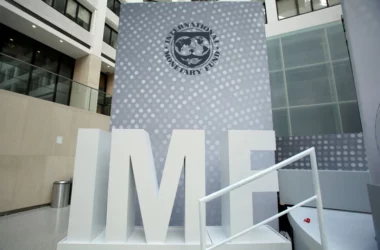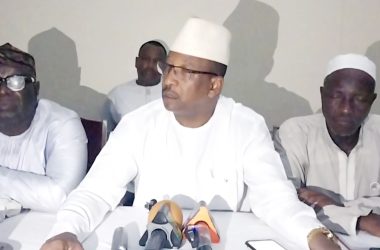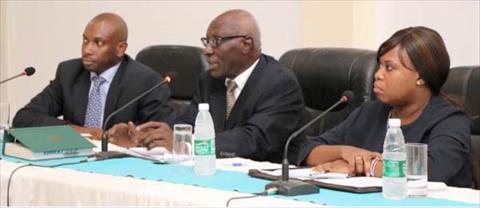
(JollofNews) – The Surahata Janneh Commission, Faraba Banta Commission, and the TRRC may end up tripping over themselves, making them absolutely worthless to the state, but they are and may continue to become worthy money-making ventures to the individuals employed to run them. They may become the most expensive ways to get to the so-called truths. In my view, these Commissions are looking for what is not lost. These commissions are the products of an inept government headed by an incompetent President who seems incapable of learning on the job. Therefore, we need to replace him as soon as possible.
On the Surahata Janneh Commission
1. This inept government already grossly compromised the work of the Janneh commission by employing or leaving in post some of the members of the former regime who testified before the Commission. It is unclear why the Commission woefully failed to make known, its views on the government’s seemingly deliberate interference in the Commission’s work, so that it can help restore/instil public confidence in its work. Could it be that they think that we are all, in general, very gullible, uninformed and that we will believe anything that they throw at us?
2. Having extended the duration of the hearings before, today (November 30, 2018) the Janneh decided to extend its mandate to January 10, 2019. What is the matter with these Commissioners – is it greed, inefficiency or both? I hope by now most Gambians have come to the realisation that the Surahata Janneh Commission continues to be one expensive way to uncover the truth. However, it may never recover the kind of money being spent to run it. If this inept government ever tries to recover any of the money, it may have to enter into another cycle of shabby investigations, lawsuits which may be a further drain on the resources or the Executive would have to go and beg to finance any such futile exercise and legally squander some of it in per diem payments.
On the Faraba Banta Commission
Now that the government has released the report of the Faraba Banta Commission of Inquiry, we eagerly look forward to the moment when Justice will be served for the Faraba victims. Clearly, the capacity of the Barrow government to act on the Commission’s recommendations and on its own raft of measures, in full, without delay should and must set the bar for what we should and must expect when the Janneh Commission publishes its findings and recommendations; and especially the TRRC, whenever it gets underway and completes its truth-seeking exercise and publishes its report/recommendations. This is because the incident at Faraba Banta on June 18, 2018 which led to the loss of innocent lives and property and division within the village, which may be smouldering for some time to come, were committed under the watch of this government. But it remains unclear how the government’s efforts will foster lasting unity within the village.
Indeed given that time is not a valuable currency to this government, the victims and victims’ families may have to wait for some time yet before the promised compensations are determined and disbursed, which may be dependent upon the completion of police investigations and the outcome of prosecutions. We hope that travelling to and from the court will not cause the victims and victims’ families to be out of pocket during the course of these proceedings because The Gambia judiciary system is probably the most disorganised in the world; they seem to be superb at adjourning hearings as and when they feel like it, without notice to the parties.
On the TRRC
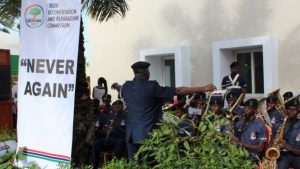 How does one establish a true historical record of what happened, reconcile, and ensure that the victims receive the reparations they supposedly truly deserve when:
How does one establish a true historical record of what happened, reconcile, and ensure that the victims receive the reparations they supposedly truly deserve when:
1. Despite all of the self-serving Facebook posts and the so-called (and possible urban-centric) sensitisation work, only 34% of those surveyed trust the TRRC a lot, and 12% and 13% trust it somewhat and just a little, respectively? There may be various factors that may have contributed to the reduced public trust in the TRRC, not least is the fact that the TRRC stemmed from a campaign promise by President Barrow, unlike other truth commissions; thus it is argued that some opposition supporters may see it as a tool to punish Jammeh and his supporters accused of human rights abuses (page 4, Afrobarometer survey). Critics, including myself and many objectively-minded individuals may be of the view that justice is blind and that it should be determined and managed by individuals who are competent, unbiased, and not conflicted. Overall, with public confidence in the TRRC being less than 50%, I think the Commissioners must work to improve public trust in their work so that it is worth the effort.
2. Most of the perpetrators are absent and some of the victims and victims’ families may never be questioned because they are absent/out of the country? In seeking to build a true historical record, have we in the process forgotten the basic truth that one has to hear from both sides of an account to establish the truth? And how would some of the present (i.e., those victims in the country) reconcile with some of the absent (i.e., absent perpetrators)? How does a poor country like ours ensure that the victims receive the reparations they “truly” deserve and what does that mean anyway? A recently published Afrobarometer survey showed that most of those surveyed said that, irrespective of the work of the TRRC, they would wish to see the perpetrators of the rights abuses of the Jammeh regime tried in court. Is it not reasonable to expect the government to have done such research before constructing the dodgy TRRC Act, 2017 or for the TRRC Secretariat to engage in such work beforehand? Does one have to be Albert Einstein to know this and is it too late to change course so that it can be done rigorously and competently to meet the expectations of those that matter? The promises of reparations are being pedalled on the back of a very dodgy TRRC Act, 2017 which can only be financed through shamelessly begging partners, and the UNDP to pay for wrongdoings they never committed. And let us be clear, much of any such monies gifted may end up lining the pockets of politician, and the Commission staff, instead of helping to rebuild some truly broken lives. How can we possibly prosecute the perpetrators of the heinous rights abuses of the Jammeh regime when many who could may have quite possibly left the country? In fact, as far as I know, the TRRC is still unable to engage all of the known victims, victims’ families and perpetrators both in The Gambia and the diaspora – they DO NOT have a true and accurate record of all of the victims, victims’ families and perpetrators and their geographical locations. When you hear that this truth commission would be different, believe it, it will definitely be different; it is still trying to find its feet and some of the staff probably have the capacity to learn on the job.
3. Recently the TRRC asked the government to set up a medical board to review the cases of some of the victims of Jammeh’s brutal regime. While this may be a step in the right direction, one must ask whether a Health Ministry that is unable to secure the most basic medical supplies, treatment and management of diseases for the nation can afford to finance a medical board for a select number of victims. For example, what is the rationale for paying particular attention to the select victims of Jammeh’s brutal regime, i.e., those detained during April and May 2006 and survivors of the April 10/11, 2000 massacre? Is it not the case that there are many other worthy victims, victims’ families who are also in need of urgent medical and psychosocial attention? Besides, unless the board members will work for free, it looks like another shoddy exercise is being planned which will cause further wastage of the nation’s resources or they will use money acquired through begging to finance it. In my view, these and many related questions must be asked and we must seek to completely and competently address them if we are to make meaningful progress in this supposed truth-seeking exercise and deliver equitable support, reconciliation/justice for all.
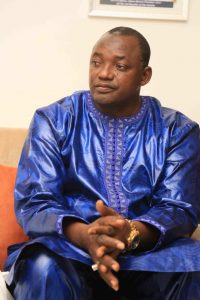
The TRRC may become a classic exercise in futility. It is and it will continue to deliver a lot of good for some of the Commission staff, but it may also achieve undesirable results, including finger-pointing of sorts. Briefly, 1) victims and victims’ families may end up accusing an inept government for not acting on the TRRC’s recommendations which could lead to undesirable consequences such as demonstrations and so on; 2) some of the staff working on the Commission may join the victims and victims’ families and also point their fingers at the government for not acting on the Commission’s recommendations. Should this occur, our reaction to such individuals should be that they did know this government to be ineffectual before accepting to work on the TRRC. I think such opportunistic or parasitic behaviour would seem premeditated and may only serve the interest of such individuals, but would trample on the rights, interests and aspirations of everyone else, most especially the victims and victims’ families who have been suffering in silence for some 22 years. I do not think that such apparent selfishness can help move the country forward. And can it be justified that some victims continue to benefit from the TRRC by virtue of being employed on it while many others who may arguably be more deserving die a slow lingering death for lack of the most basic medical needs? The TRRC is looking for what is not lost; the money being wasted on it could be used to alleviate the suffering of many victims, victims’ families and work with the international community to bring the perpetrators to justice.
For a poor country, engaging in some of these hopeless commissions simultaneously is a wasteful drain on the state’s meagre resources and image (– because of the shameless begging to finance it) and suggests that President Barrow and the machinery of his government are appallingly inept; that they do not know the need for prudence, and the use of functional state institutions and systems in dealing with issues. It also shows their inexperience and incapacity to identify competent, well-meaning and demonstrable expertise to run institutions and systems so that the government’s programme of activities can be successfully completed in a timely manner. With nearly 2 years in office, President Barrow is yet to bring the hope and optimism we would have wanted in a leader. Instead, he is wrapping our country in hopelessness and humiliation. In regards to national development, he is ideologically flawed; and so far, he has shown his incapacity to learn on the job. However, he seems to be quite good at plucking the feathers of sensibility out of systems and processes. For example, one wonders if there is any need to set up some of these commissions when you have a Justice Ministry. Perhaps this suggests that the Justice Ministry lacks capacity. And what is the point of launching the Social Security and Housing Finance Corporation (SSHFC) Investigative Panel if, after the Panel’s findings, you refer much of the work back to the Board of Directors? Briefly, President Barrow has decided on the independent fact-finding panel’s report on the saga at the SSHFC by lifting the administrative leave of the Managing Director, Mr. Muhammed Manjang, but then he left much of the dirty work to be done by the Board of Directors of SSHFC. Was it not obvious to President Barrow and his Advisers that the Board of Directors of SSHFC had within them the capacity to resolve this matter in the first place, at no additional cost to the state?
In my view, President Barrow’s ill-advised involvement and unnecessary interference in this matter has caused excessive wastage of public funds and avoidable delay in resolving a simple matter. Let’s hope that disgruntled individuals at other public institutions do not copy the same act that resulted in the setting up of the SSHFC Investigative Panel, which is another name for a commission of inquiry.
Interestingly, given the Barrow government’s insatiable appetite for Commissions, it is unclear why the Barrow government continues to be indecisive in resolving the situation of the international voice gateway operations at Gamtel and the billing system at Gamcel. All indications show that Mr. Sulayman Suso (Managing Director, Gamtel) was doing a good job at Gamtel in helping to return this institution to its former glory of being one of the best in Africa, which Jammeh virtually destroyed. For some 8 months, Mr. Suso has been on administrative leave. For the record, this is some 4 months before Mr. Manjang was asked to go on administrative leave to make way for the SSHFC investigations. What excuse is the Barrow government going to come up with for seemingly doing all it can to launch and keep some investigations ongoing and everything in its power not to investigate and resolve the issue at Gamtel?
It is my view that President Barrow and his team are incompetent and they are gradually steering the country towards a fail state. Tragically, they seem to be oblivious to this. Therefore, we live in uncertain times and we must not allow moral numbness to take hold or surrender to the flawed opinions of some conflicted and self-serving religious leaders (within and outside), unprincipled District Chiefs, and National Assembly Members. We are gradually sailing into choppier waters and the journey to destination fail state would become faster than we would have wished if we accept to be ruled by President Barrow longer than 3 years. He must honour the Coalition agreement and leave in 2019. In so doing, he will be remembered for keeping his word.








